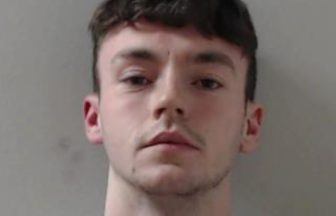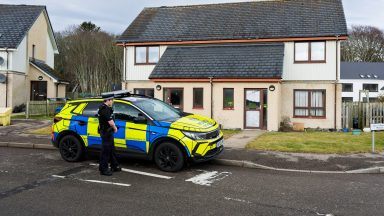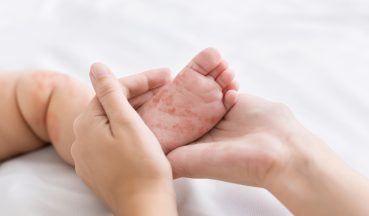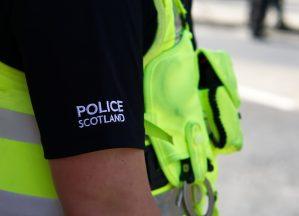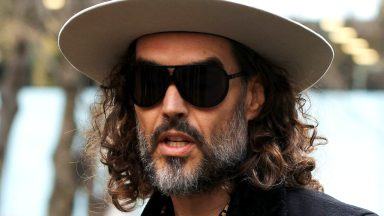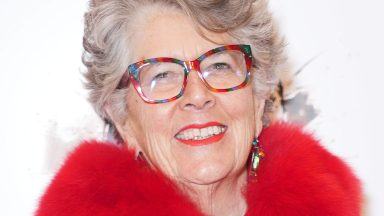A devastated Fife family have shared how a minor squint in their baby’s eye turned out to be a rare and aggressive form of cancer.
Scott Lyon, 33, and Olivia Lyon, 29, said they noticed Blair had a squint shortly after his first birthday.
They consulted a health visitor, who arranged an appointment with an ophthalmologist in December 2024.
Expecting a routine eye check, the couple were stunned when doctors at the Royal Hospital for Children in Edinburgh discovered two large tumours behind Blair’s eyes. Within days, specialists had diagnosed Blair with bilateral retinoblastoma.
Blair’s condition was described as “advanced”, with the tumour in his left eye graded E – the most severe stage – and the one in his right eye graded D. Both retinas had detached due to the extreme pressure caused by the tumours.
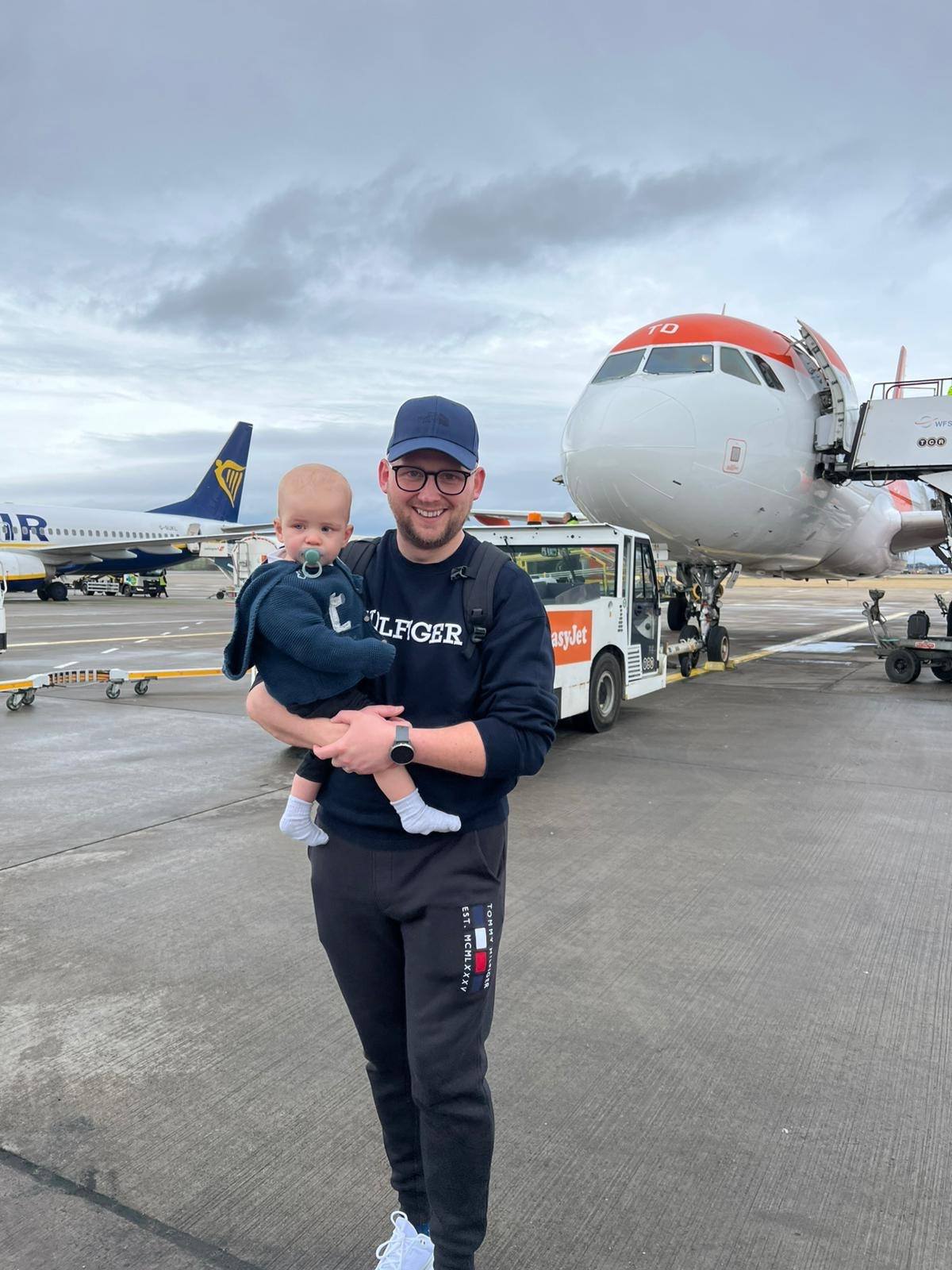 STV News
STV NewsOlivia told STV News: “I just kind of went numb. As soon as you hear ‘tumour’, you fear you’re going to lose him. It’s hard to take in, especially in those early days.
“I’d never heard of retinoblastoma before. We had so many questions, so many dark thoughts. All I could think was, ‘Whatever it takes, let’s get through this’,” Scott added.
Retinoblastoma is a rare and aggressive form of eye cancer that affects babies and young children under the age of six. Around 40-50 cases are diagnosed a year in the UK.
While rare, retinoblastoma has a high survival rate, with nearly all children (98 out of 100) being cured.
The cancer can be detected by a white glow in the eye in artificial light, a squint, changes in eye colour and sight deterioration, according to the Childhood Eye Cancer Trust.
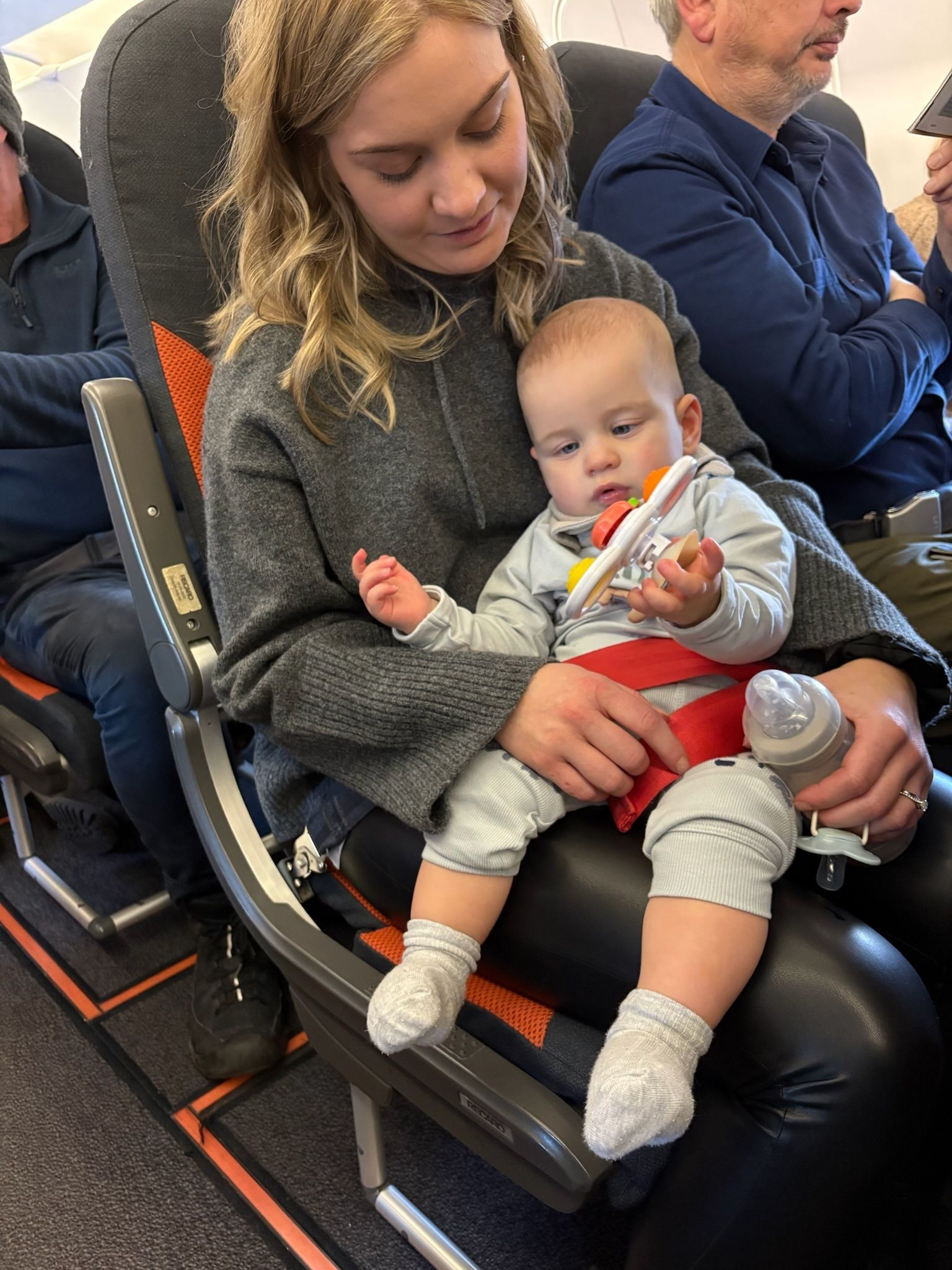 STV News
STV NewsThe charity says families should seek an in-person test as soon as possible as remote calls may not detect eye symptoms.
Blair has undergone five rounds of chemotherapy, with his sixth and final round in May.
He has also been attending a specialised retinoblastoma centre in Birmingham for laser therapy and cryotherapy.
Scott and Olivia say it’s difficult to watch their “playful and happy” little boy suffer through the gruelling treatment.
“We’re optimistic, but chemotherapy is hard for him,” Scott said. “The sickness phase lasts five to seven days with vomiting, lack of appetite, and night tremors. This is when the chemotherapy is in his system.
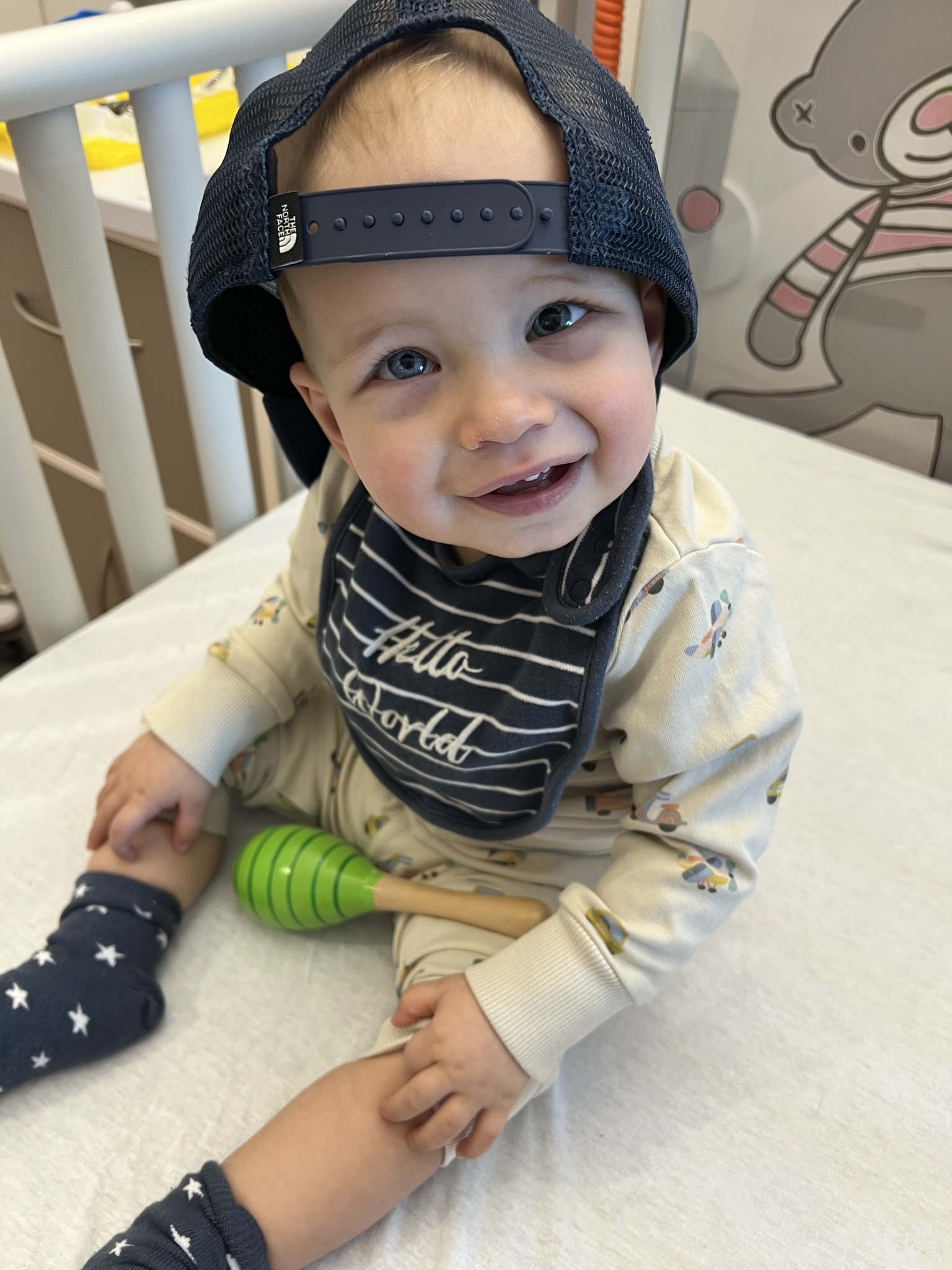 STV News
STV News“The second phase, neutropenia, happens because chemotherapy kills cancer cells but also healthy cells, eroding bone marrow and leaving him immunocompromised. We’re on constant watch for infections.
“The third phase is recovery, where his blood counts improve. We then have a ten-day window before the next round of chemotherapy begins.”
The tumours have been responding well to treatment, but Scott says Blair is likely to lose sight in one eye.
“Our main concerns are getting rid of the tumours to save his life, and secondly, what vision he’ll have left after this is over,” Scott said.
“We’re optimistic about the vision in his right eye, but the left eye may be blind. The tumour there was more severe. But we’ll deal with it as it happens.”
Blair’s cancer journey has taken a heavy emotional toll on the family.
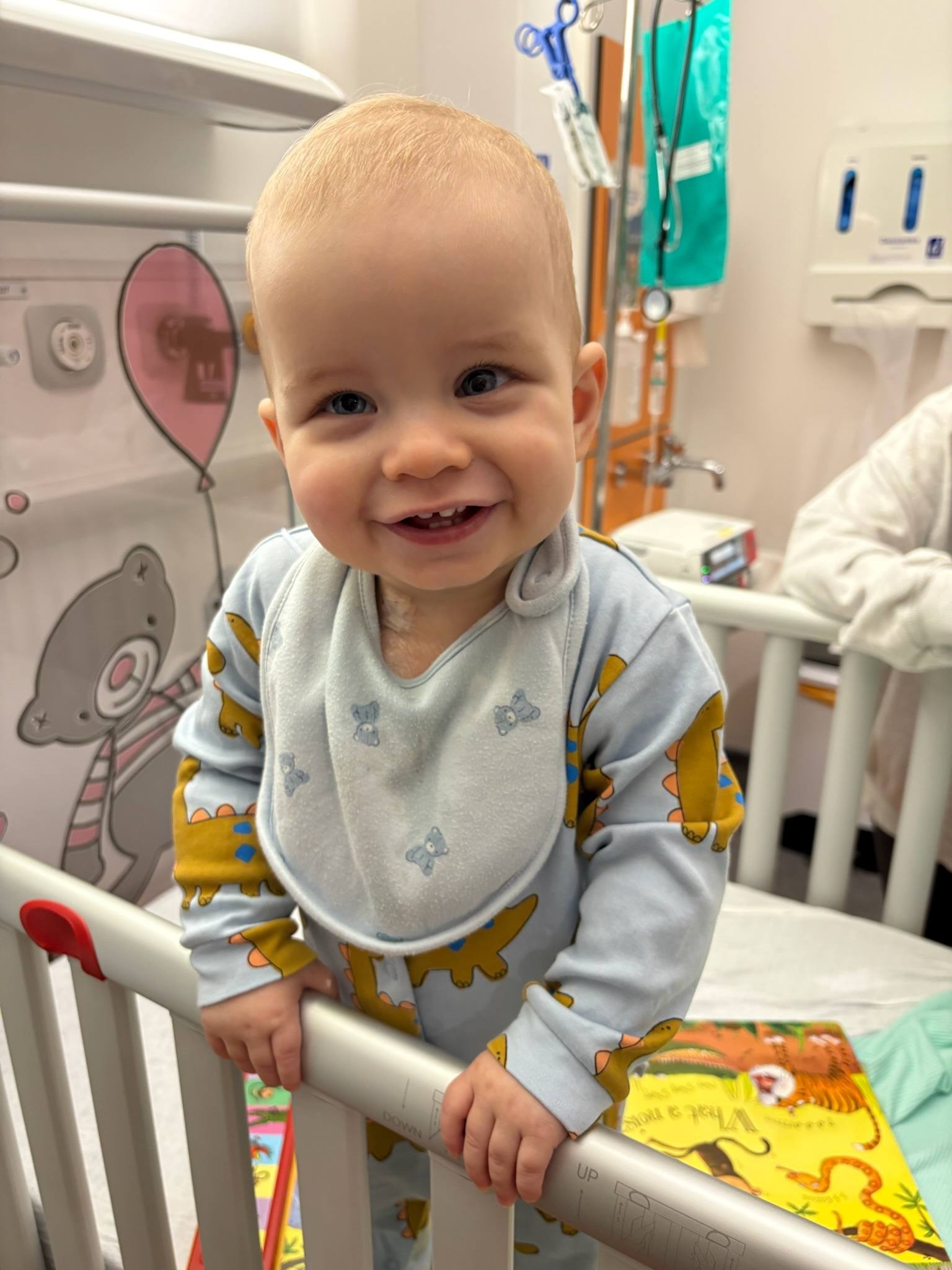 STV News
STV NewsOlivia said she often reflects on Blair’s early months, wondering if there were any signs they missed.
She said: “I’ve gone through thousands of pictures on my phone to look for a glow in his eyes, but there was nothing.
“We now know both of Blair’s retinas were detached, and the tumors in both eyes caused extreme pressure.
“We think back to when he was crying as a baby and he couldn’t tell us what was wrong – maybe he was in pain, maybe he couldn’t see.
“We just didn’t know.”
Scott added: “Had it gone undiagnosed, it could have been horrifying; the tumours would have spread to his brain and killed him.
“We’re lucky they caught it when they did.”
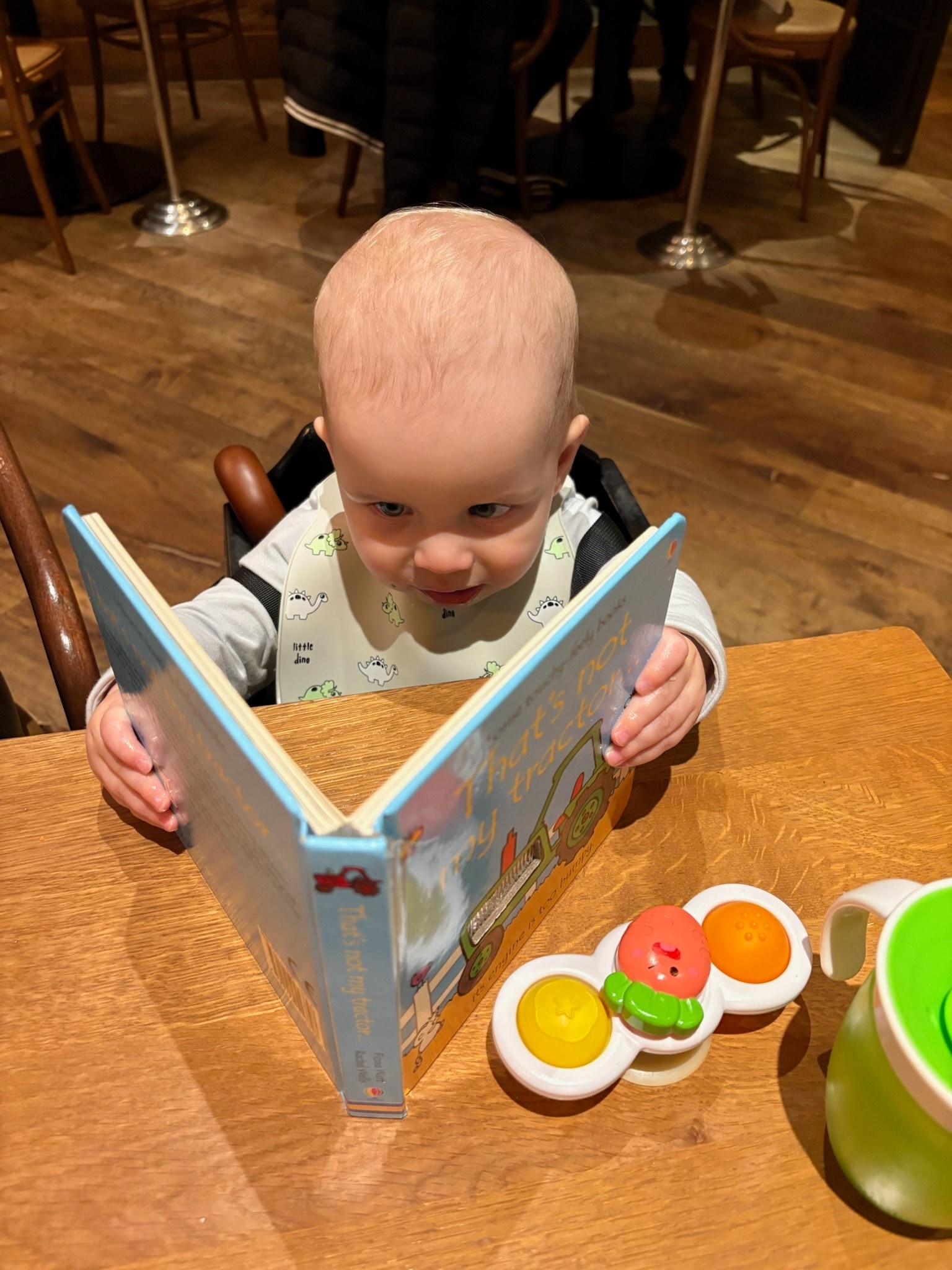 STV News
STV NewsBlair’s family has been documenting their journey on Facebook to raise awareness about childhood eye cancer. They hope that by sharing their story, other families might recognise the signs of retinoblastoma and seek medical help sooner.
Blair’s case was even raised by Fife MSP Roz McCall at First Ministers Questions in parliament on Thursday April 24. The First Minister praised the “incredible” NHS for their swift efforts and urged parents of young children to seek medical help for any concerns.
“We don’t want to be quiet about it given how important early diagnosis is. If your child has any signs, don’t write it off. Get it checked. It could save their life,” Scott said.
“With a rare condition like retinoblastoma, it’s not always immediately considered.”
Olivia added: “If there had been more awareness earlier, it might have helped other families get diagnosed sooner.
“Read up on childhood cancer symptoms – take five to ten minutes to learn. You might need that knowledge one day.
“Always trust your instincts as a parent.”
Follow STV News on WhatsApp
Scan the QR code on your mobile device for all the latest news from around the country


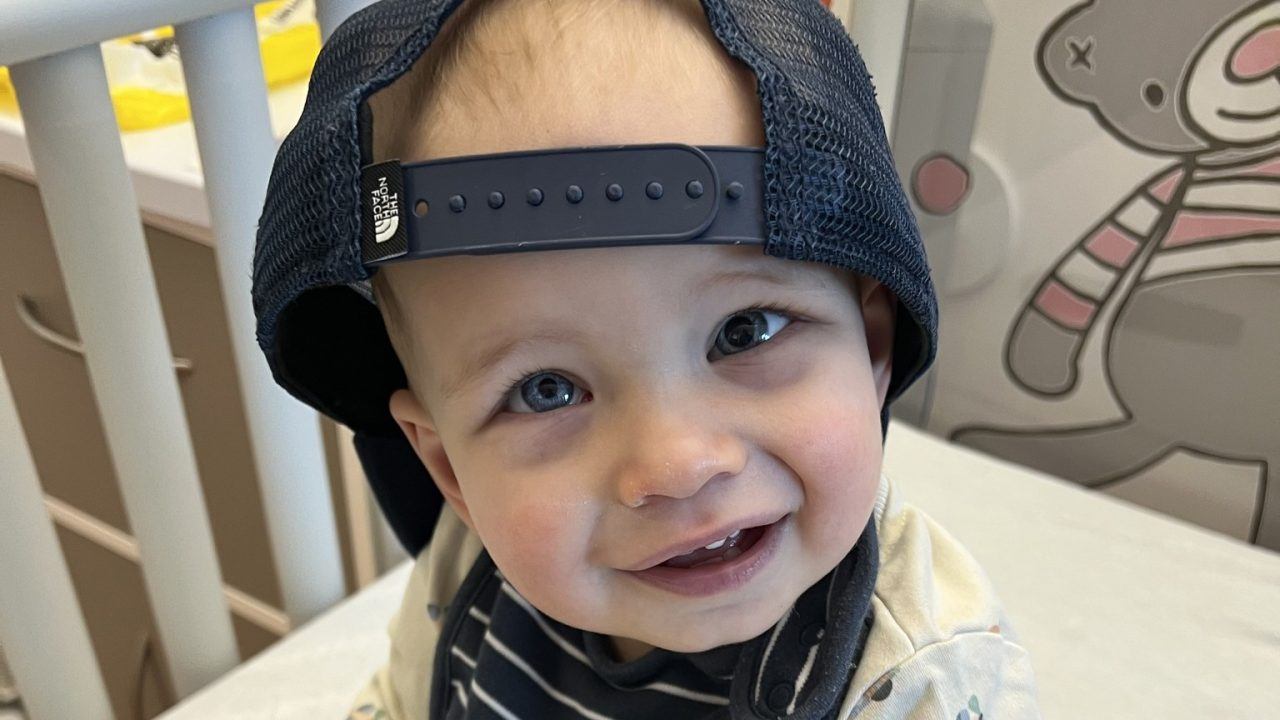 STV News
STV News

